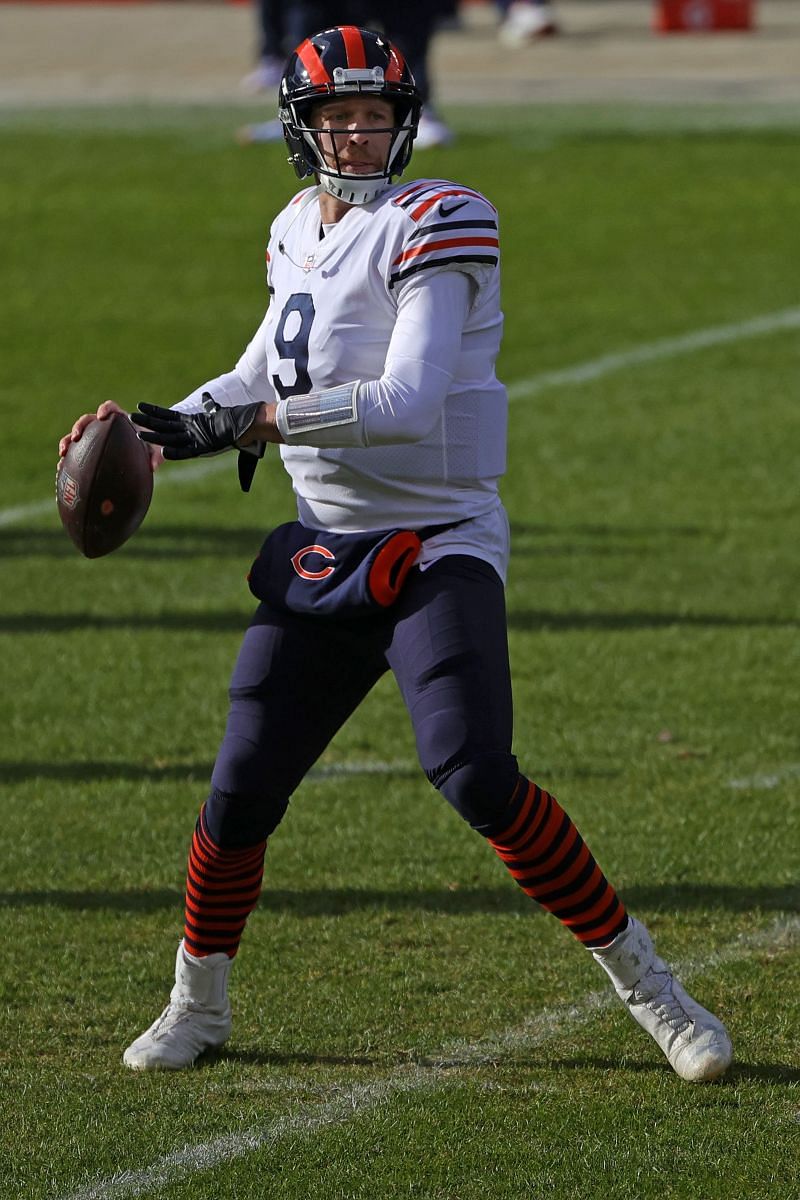
NFL: Does trading Nick Foles make sense for Chicago?

Coming down the stretch of the 2017-18 NFL season, there was no hotter quarterback than the Philadelphia Eagles signal caller Nick Foles.
Filling in for an injured Carson Wentz, Nick Foles played outstanding football to lead the Eagles to the Super Bowl in February 2018. In the biggest game of his NFL career, Nick Foles went toe to toe with the legendary Tom Brady and did something only one other quarterback has been able to do.
He beat Brady in the big game, and his reputation as a clutch player took off in NFL circles.
The very next season with the Eagles, Nick Foles was starting to gain steam at the end of the year, leaving fans wondering if he could work his magic for a second straight campaign. He was nearly able to pull off another impressive run, but the team fell short in the divisional round against the New Orleans Saints.
Since his final game as an Eagle, the ensuing years for Nick Foles have been rocky, to say the least. He got a massive contract to leave the Eagles and sign with the Jacksonville Jaguars in March 2019.
However, from the very beginning of his tenure, it appeared like his time in Northern Florida was doomed to fail. In his first game with Jacksonville, Nick Foles broke his collarbone and was never able to get his footing. He didn’t win one game with the team.
In March 2020, the veteran quarterback was traded to the Chicago Bears as insurance for incumbent starter Mitchell Trubisky. Nick Foles was not exactly an upgrade on Trubisky, as he went 2-5 in the seven games, he started for the Bears.
As has seemingly been the question for the better part of 30 years in Chicago, what do the Bears do now? Should the team part ways with Nick Foles ahead of the 2021 season? Let's have a look at both sides of the argument.
Why should Chicago keep Nick Foles?
While it can be argued that Nick Foles' performance late in the regular season and into the playoffs in his final two years with the Eagles was a fluke, he still has a formidable resume in the NFL’s biggest games.
There are many young quarterbacks—heck, even many veteran quarterbacks—who haven’t come close to sniffing the success Nick Foles has had in the postseason, even if it came largely in one year.
It might be wishful thinking to believe that it could happen again. But having Nick Foles on the roster, even as a reserve, could pay dividends if he can recapture his magic touch.
Additionally, in 2020, Nick Foles played for a third team in as many seasons, and there’s a case to be made that annual change for a quarterback is about as detrimental to performance as a shoddy running game or a porous offensive line.
Even though his career stops have been linked to coaches under the Andy Reid tree, having to work with new coaches in three consecutive years can take its toll on a quarterback. Keeping Nick Foles around to develop another year of familiarity with head coach Matt Nagy and the Bears’ offensive philosophy could be mutually beneficial for both player and team.
Why should Chicago trade Nick Foles?
His accomplishments during the Super Bowl cannot ever be taken away from him, but there’s a reason why Nick Foles has not been able to stick as a starting quarterback in the NFL.
While the hot streaks in his career have been awfully impressive, he usually comes crashing back down to earth. At this point, Nick Foles is two full seasons removed from his last stretch of effective play. And it’s fair to wonder whether he can ever get on a tear again. Head coach Matt Nagy simply cannot afford to give Nick Foles an unlimited amount of rope, considering the player's inconsistent track record.
Another reason for Chicago to consider parting ways with Nick Foles now is the decent market he likely still has around the league.
Letting Nick Foles play in 2021 with the possibility of him struggling would all but kill his value. But at this point and time, there are probably still a few teams who would be interested in his services.
Nick Foles certainly has a familiarity with the coaching staff in Indianapolis and Kansas City. Bill Belichick and the New England Patriots also got a first-hand look at what he could do in the Super Bowl and could use another option at quarterback if Cam Newton falters.